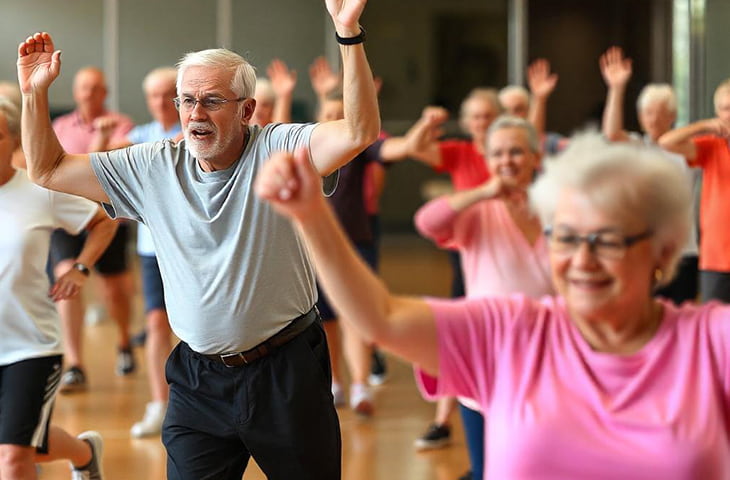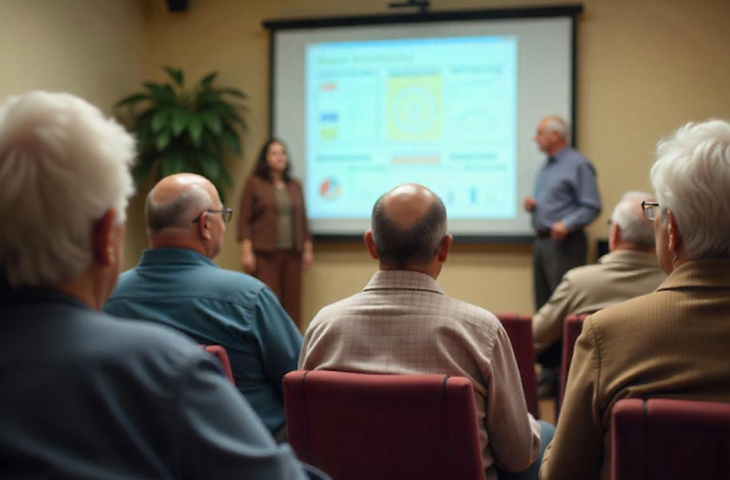Top Exercises for Elderly Parents and Tips to Keep Them Motivated

Top Exercises and Tips for Active Seniors
As our parents age, maintaining an active lifestyle becomes increasingly crucial for their health and well-being. Exercise is not solely about staying fit; it's about enhancing their quality of life, ensuring they remain independent, and helping them enjoy their golden years to the fullest. Engaging in consistent physical activity offers numerous physical, mental, and emotional benefits, such as improved cardiovascular health, better muscle strength, enhanced balance, and even uplifted moods. However, finding the right exercises and motivating elderly parents to stick with them can often be challenging.
Here, we'll explore the top safe and effective exercises for seniors. We'll also dive into practical tips and strategies to keep them motivated and ensure that exercise becomes an enjoyable and sustainable part of their daily routine.
Cardiovascular Exercises
- Walking: Walking provides numerous benefits for the elderly, including improved cardiovascular health, enhanced muscle strength, and better joint flexibility, all while being gentle on the body. It assists in managing blood pressure, decreasing the chances of chronic illnesses, and enhancing mood. For optimal results, seniors are advised to walk at a moderate pace for at least 150 minutes per week, which can be divided into 30-minute sessions over five days.
- Swimming: Swimming is a low-impact activity. The water's buoyancy supports the body, lessening joint stress and minimizing injury risk. It provides an excellent full-body workout, helping to improve cardiovascular health, boosting endurance, and strengthening muscles. Additionally, swimming can enhance respiratory function and promote overall well-being while being gentle on the bones and joints.
- Cycling: Cycling offers significant cardiovascular benefits for older adults, including improved heart health, increased stamina, and better circulation. Outdoor biking allows seniors to enjoy the fresh air and scenic routes, promoting mental well-being. In contrast, stationary biking provides a safer, controlled environment with adjustable resistance levels suitable for different fitness levels. Both options enhance cardiovascular health and can be tailored to individual abilities.
Strength Training Exercises
- Light Weight Lifting: Light weight lifting can significantly improve strength and muscle tone in seniors, supporting better functionality and reducing the risk of falls. It's crucial to start safely with light weights, gradually increase resistance as strength improves, and incorporate workouts such as leg lifts and arm curls to target different muscle groups. This approach ensures a balanced workout, enhances muscle mass, and promotes overall physical health in older adults.
- Resistance Band Workouts: Resistance band workouts are an excellent way for the elderly to improve strength, flexibility, and balance with minimal risk of injury. These bands provide adjustable resistance, making them versatile for various fitness levels. Effective exercises include seated rows, leg presses, and bicep curls, which can help enhance muscle tone and support overall physical health.
- Bodyweight Exercises: Bodyweight exercises are a practical and effective way for seniors to maintain strength, flexibility, and balance without needing equipment. Simple exercises like seated squats and wall push-ups are easy to perform and can be adjusted to match individual fitness levels, promoting overall physical well-being and functional independence. These exercises aid muscle building, enhance joint health, and facilitate everyday movements.
Balance and Flexibility Exercises
- Yoga: Yoga improves balance and stability in the elderly, contributing to greater physical and mental well-being. Mild poses, such as seated forward bends and supported tree poses with breathing exercises, are appropriately appropriate for seniors. These activities help enhance coordination, increase flexibility, and promote relaxation, making yoga a valuable addition to their fitness routine.
- Tai Chi: Tai Chi is an ideal exercise for older people. It is characterized by slow, purposeful movements that enhance balance and concentration. This gentle practice not only improves physical stability but also promotes mental clarity and relaxation. Incorporating Tai Chi into a regular fitness routine can significantly lower the chances of falls and improve overall well-being.
- Stretches: Stretching is a crucial activity for older people, offering a simple way to enhance flexibility and reduce stiffness. Daily stretching routines can help maintain the range of motion in joints, alleviate discomfort, and promote better circulation. By incorporating regular stretching into their lifestyle, seniors can improve mobility and support overall physical health.
Tips to Keep Your Elderly Parents Motivated
- Set Realistic Goals: Help your parents break down their fitness goals into small, manageable tasks that can be easily achieved, like walking 10 minutes daily. When goals are realistic, they are more likely to feel a sense of accomplishment, encouraging them to continue.
- Incorporate Social Activities: Encourage them to join group exercises or senior-specific classes. The social interaction will make the experience more enjoyable, and the sense of community will provide additional motivation to stick with the routine.
- Create a Routine: Establish a consistent exercise schedule for them, such as morning stretches or evening walks. A routine helps develop habits, making exercise a natural part of their daily lives and easier to maintain.
- Choose Enjoyable Activities: Find and suggest physical activities they genuinely enjoy, such as aerobics, dancing, or tai chi. When exercise is linked to their interests, it becomes more engaging and feels less like a chore, making them more likely to stay active.
- Provide Gentle Encouragement: Offer regular, gentle reminders and positive reinforcement without adding pressure. Your support and encouragement will make them feel valued and more inclined to stay active, knowing their efforts are appreciated.
- Adapt to Their Needs: Tailor exercises to match their physical capabilities and limitations, such as seated exercises for those with mobility issues. Customizing workouts ensures they remain safe and comfortable, reducing the risk of injury and promoting sustained activity.
- Involve Family Members: Organize family activities that include physical exercise, like weekend walks or yoga sessions. Exercising together motivates support and accountability while also creating valuable bonding experiences.
Final Words
Helping your elderly parents stay physically active is essential for their health and well-being. By incorporating exercises they enjoy, setting realistic goals, and providing positive reinforcement, you can motivate them to maintain a regular exercise routine. Your support and involvement can significantly improve their quality of life, ensuring they stay fit, happy, and independent for as long as possible.


